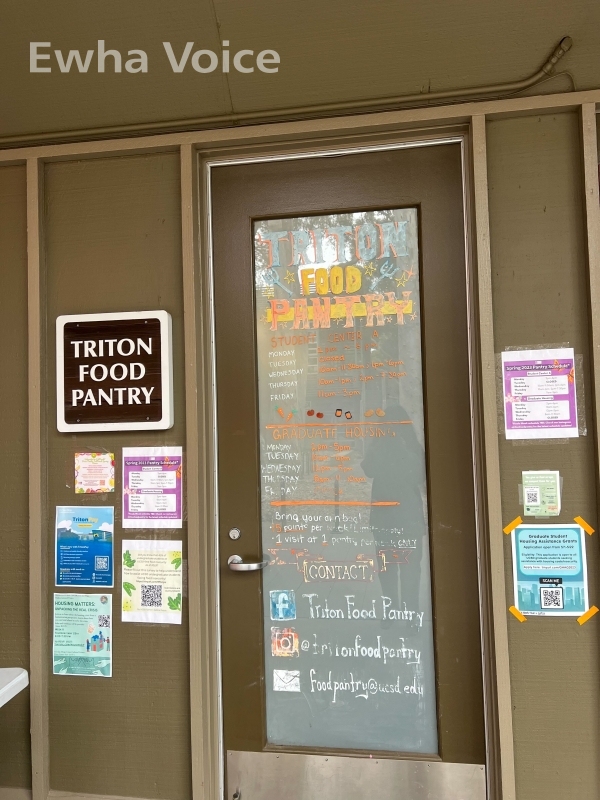
Despite college having a strong reputation for being a time filled with opportunities and carefree excitement, a growing number of students around the world are struggling to even put food on the table. The high cost of tuition and living expenses, as well as limited income and inadequate access to nutritious meals, have led to food insecurity among college students. Many non-profit organizations and university-run food banks around the world are focused on the battle against food insecurity, providing university students with cheap or free food resources.
The degree of financial hardship college students face varies greatly from needing to cut down on unnecessary purchases to being unable to afford necessities, such as food, after paying for housing and other living expenses. Students are often more prone to financial struggles due to not being able to work full-time and sometimes having to pay for costly tuition themselves.
University campuses around the world are working to address the problem of food insecurity and help the students of their campus maintain a healthy diet without having it be a financial burden. The Triton Food Pantry of the University of California San Diego (UCSD) provides emergency and supplemental food resources to all undergraduate and graduate- level students at UCSD.
The UCSD Triton Food Pantry does not require any proof of financial hardship and operates on a point system. Shelf-stable and refrigerated items have designated point values, and produce items have no point value but limited quantities. Each week students have access to a maximum of 15 points worth of groceries. The pantry sources the majority of its stock from wholesale vendors but also accepts donations of shelf-stable items and produce from campus gardens. The Triton Food Pantry also had a delivery service in which DoorDash, an online food delivery company, delivered groceries from the pantry to individual students free of charge. While it is on pause as of now, a direct partnership with DoorDash’s Project DASHwill allow them to resume their delivery services in the summer of 2023.
Pop-Up/Accessibility Manager Caytre Ede expressed that she feels proudest through testimonies of students who utilized the DoorDash DeliveryService.
“There was one student who shared that they are a full- time working graduate student who needs help financing fresh produce to keep energized and graduate,” Ede illustrated. “They shared that the deliveries “adds a calm to [their] life that [they] were stressed about before and that it honestly has provided [them] with a breather knowing that [they] have food coming”. This really has helped [them] to utilize the time [they] would use for budgeting food, to instead, make healthier dinners and study.”
Located in Queensland, Australia, the Queensland University of Technology (QUT) Guild Food Bank is another prime example of a free and accessible food bank for college students. The QUT Guild Food Bank provides essential items such as noodles, pasta, canned vegetables, and other basic ingredients for students that are unable to afford necessary foods without requiring proof of financial hardship.
“By making this service available we are providing comfort to students,” explained John Longwill, the Welfare Officer at QUT Guild Food Bank. “They know that even if they cannot work that extra shift, or have to take a day off work, they will at least be able to have some food to get themselves through the rest of the week.”
The QUT Guild Food Bank helps over a hundred students with their basic needs every week. They experienced over a fivefold increase in demand for their services this year compared to the year prior. The rise in cost of living is currently impacting many students, resulting in this rise of demand.
Apart from campus-based food banks, non-profit organizations are also striving to combat food insecurity among college students around the world. Youth Mungan, with four locations around South Korea, is a non-profit organization that provides affordable meals for the youth. Anyone is welcome to come and enjoy a warm hearty meal. Since the opening of Youth Mungan’s first location at Jeongneung in December 2017, a total of 120,000 customers have visited with 76,000 of them being part of the younger generation.
Their one menu, kimchi stew (kimchi jjigae), is sold at a low price of 3,000 won. This only covers the cost of ingredients. Other factors such as rent and cost of labor are being covered by donations. Youth Mungan also offers their menu free of charge whenever extra donations come through. In 2021, they received 17,000,000 won in donations, and 21,000,000 won in 2022.
“Youth Mungan’s goal is to provide affordable meals to the youth. Our goal was always simple; it was never to expand into a multiple-location business,” said Lee Sung Gu, the Administrative Manager of Youth Mungan.
However, with the help of many donors, they were able to open locations at Ewha Womans University, Nakseongdae, Jeju, and are looking into opening a fifth location at Daehak-ro.
Organizations like these around the world are focused on the road to combating food insecurity for has been one of the most pressing problems within college communities.
“Food insecurity is one of the most important issues of the modern day as it speaks to one of the most basic human needs,” Longwill stated. “It is a massive burden when you have to worry about being able to afford food to sustain yourself. It impacts and detracts from all other areas of your life including social, work, and study commitments.”
The determined voices behind the organizations currently striving to provide food for struggling college students emphasize community approaches and raising awareness when it comes to combating food insecurity. Recognizing the problem, wanting to spread warm wishes, and creating community partnerships are what create the road to change.

